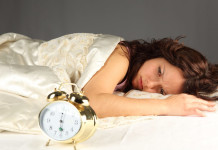According to a research by U.S. experts, people who have little sleep are much more likely to suffer depression and alcoholism, infectious diseases, as well as risk to die earlier than those who do not spare time for sleep.
Sleep & Diseases Risk
Poor health may be the cost of inadequate sleep. Numerous studies show that people who sleep little are at greater risk of diseases and health problems. Besides, more than nine hours’ sleep is also associated with poor health.
Bad Mood & Sleep Deprivation Linked
Given that one sleepless night can cause a person to be irritable and moody the following day, it can be assumed that chronic lack of sleep can lead to long-term mood disorders. Chronic sleep problems are associated with depression, anxiety, mental suffering. In one of the studies, the respondents who slept four and a half hours a day, reported feeling sadder, angrier, and mentally exhausted. In another study, respondents who slept four hours a day, showed a decrease in the level of optimism and sociability – depending on the number of days of poor sleep. The self-esteem improved significantly when people returned to a normal sleep schedule.
Lack of Sleep Harms the Immune System
It is natural for people to go to bed when they are sick. The substances produced by the immune system to help the body fight infection can also cause fatigue. It has been proved that those who slept more when faced with an infection dealt with it more effectively than those who slept less. In fact, animal studies show that those animals that slept better and longer after a microbial infection were more likely to survive.
Those Who Sleep Less Are More Prone to Alcoholism
Studies have shown that alcohol use is more common among people who sleep poorly. The reason for this is twofold. First, alcohol acts as a mild sedative and is commonly used as a sleep aid by people who have problems with sleeping, such as insomnia. Second, the sedative properties of alcohol are temporary. Because alcohol is processed in the body for several hours, it then begins to stimulate parts of the brain that trigger arousal, which in many cases causes awakening and sleep problems later in the night.
Sleep & Longevity
Taking into account the numerous potential adverse health effects of inadequate sleep, it is not surprising that poor sleep is associated with lower life expectancy. Three extensive epidemiological studies have shown that sleeping five or fewer hours increases the risk of all-cause mortality by about 15%.
Lots of People Suffer from Sleep Problems
Of course, just like sleep problems can affect the risk of diseases, some diseases and disorders can also affect the quantity and quality of sleep. Experts estimate that 50 to 70 million Americans suffer from some type of sleep disorder. Most people do not talk about them to their doctors, and most doctors do not ask about them. This widespread lack of sleep problems awareness can have serious and costly consequences for health.






